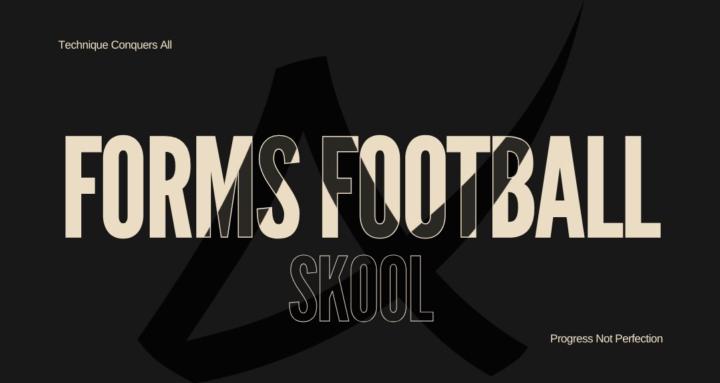Aug '25 • Forms Academy Insights
The Problem with "Play Simple"
A Forms Academy Commentary on Development, Clarity, and the Science of Decision-Making in Football
Across youth football, one of the most common instructions shouted from the sideline is: “Play simple.” At face value, this advice appears harmless and even logical. It suggests that young players should avoid overcomplicating the game, recycle possession quickly, and reduce mistakes. While this may create the appearance of efficiency in the short term, overusing the phrase “play simple” can constrain development and prevent players from reaching their full potential.
At Forms Academy, we view the game differently. We do not train players to play simple. We train them to play with clarity.
The Neuroscience of Skill and Decision-Making
Neuroscience shows that every quality repetition of a skill strengthens neural pathways through the process of myelination. Myelin acts as insulation for neurons, enabling signals to travel more quickly and precisely. When children are conditioned only to “play simple,” they may avoid the repetitions that build more complex neural pathways. Instead of strengthening their brain’s ability to process multiple variables under pressure, they are conditioned to default to the most obvious, risk-free action.
Cognitive science supports this. Cognitive load theory (Sweller, 1988) shows that beginners are easily overwhelmed by multiple demands. Limiting them to simple choices may seem helpful in the short term, but it does not expand their working memory or processing capacity. To become elite decision-makers, players must gradually be trained to handle increasing complexity.
Sport psychology also confirms that elite performers do not merely react faster, they see more. Vision researchers such as Joan Vickers (2007) have shown that advanced players develop superior perceptual-cognitive skills. They recognize patterns earlier, anticipate options sooner, and act proactively rather than reactively. A “play simple” instruction that discourages exploration delays the development of this anticipatory vision.
Why Clarity Matters More than Simplicity
Clarity means the player can scan, recognize options, and execute the correct choice with precision and speed. Sometimes that is indeed a simple one-touch pass. Other times it is a disguised through ball, a diagonal “ladder” dribble, or a creative action that breaks pressure.
When a coach overuses “play simple,” the player learns to avoid exploration, fearing mistakes. When a coach trains for clarity, the player learns to perceive complexity, weigh options, and act decisively. The difference is profound. A player trained for simplicity can recycle the ball. A player trained for clarity can solve the game.
The Forms Academy Approach
At Forms Academy, we structure development around our FORMAX 5x5 framework, which integrates technical mastery, proprioceptive control, and neuro-motor fluency. Every stage of training is designed to strengthen neural pathways, expand cognitive processing, and enhance perceptual awareness.
The outcome is that our players make the game look effortless. To the outsider, their decisions may appear simple. In reality, that simplicity is deceptive. It is the product of thousands of high-quality repetitions, layered skill progressions, and intentional exposure to complex decision-making environments.
“Play simple” is not bad advice in isolation. At times, the best solution is the simple one. But when used as a constant directive, it narrows a child’s development and conditions them to avoid the very mistakes that build mastery.
At Forms Academy, we are committed to something greater. We do not teach players to avoid complexity. We teach them to master it. Our players do not just play simple. They play with clarity. And clarity is what separates the good from the elite.
-Ron
4:01
3
0 comments
powered by

skool.com/forms-football-skool-9380
The official community of Forms Academy. Where parents & coaches learn the science, systems, & philosophy that raise elite youth footballers (soccer).
Suggested communities
Powered by
